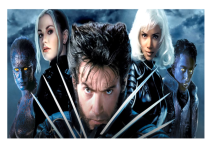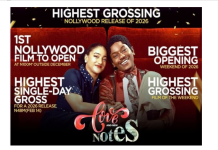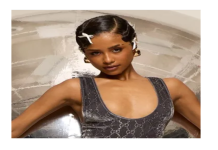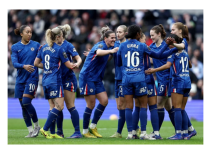Global attention shifted dramatically at the United Nations headquarters in New York on November 18, 2025, when rap icon Nicki Minaj stepped away from the stage lights and into the spotlight of global activism.
Speaking at a high-level UN gathering hosted by the U.S. Mission, with Ambassador Michael Waltz and political strategist Alex Bruesewitz in attendance, Minaj delivered an emotional and urgent plea: the world must confront the escalating persecution of Christians in Nigeria.
Minaj painted a deeply troubling picture — churches set ablaze, families displaced, communities fractured, and believers living in fear simply because of their faith. She warned that the crisis “is not just a Nigerian tragedy, but a global emergency,” calling on nations to treat religious freedom as a universal human right, not a political talking point.
The rapper did not shy away from acknowledging former U.S. President Donald Trump, thanking him for amplifying concerns about Nigeria’s humanitarian crisis. She praised his push for urgent international intervention, noting his stance on defending Christians, combating extremist violence, and protecting the vulnerable. Yet Minaj stressed her message was not partisan: “This is not about choosing sides. This is about choosing humanity.”
With characteristic candor, Minaj addressed her global fanbase — the “Barbz” — insisting that influence must be used for purpose: “If anyone anywhere is being targeted for their beliefs, then it concerns all of us.” She admitted feeling nervous speaking on such a stage, but said her conviction against injustice outweighed her fear.
Ambassador Waltz backed her position, describing attacks on Christians in Nigeria as “genocide disguised as chaos” and commending Minaj for leveraging her global voice far beyond entertainment.
Her remarks also come at a time when Nigeria has been listed as a “Country of Particular Concern” by Trump-era policy frameworks due to widespread religiously-linked attacks. Still, critics caution that Nigeria’s violence is deeply intertwined with ethnic conflicts, criminal banditry, and political instability — not solely religious persecution.
Adding to the global concern, Pope Leo XIV recently warned of rising hostility toward Christians in Nigeria, urging world leaders to recognize early signs of worsening intolerance.
Minaj closed her address with a universal call for action: “Faith is under threat in many corners of the world. We all share the responsibility to defend freedom of belief — for Christians, for Muslims, for everyone.”
Her message reverberated far beyond the UN hall — a celebrity voice igniting a fresh wave of global urgency around one of Africa’s most troubling humanitarian challenges.
































